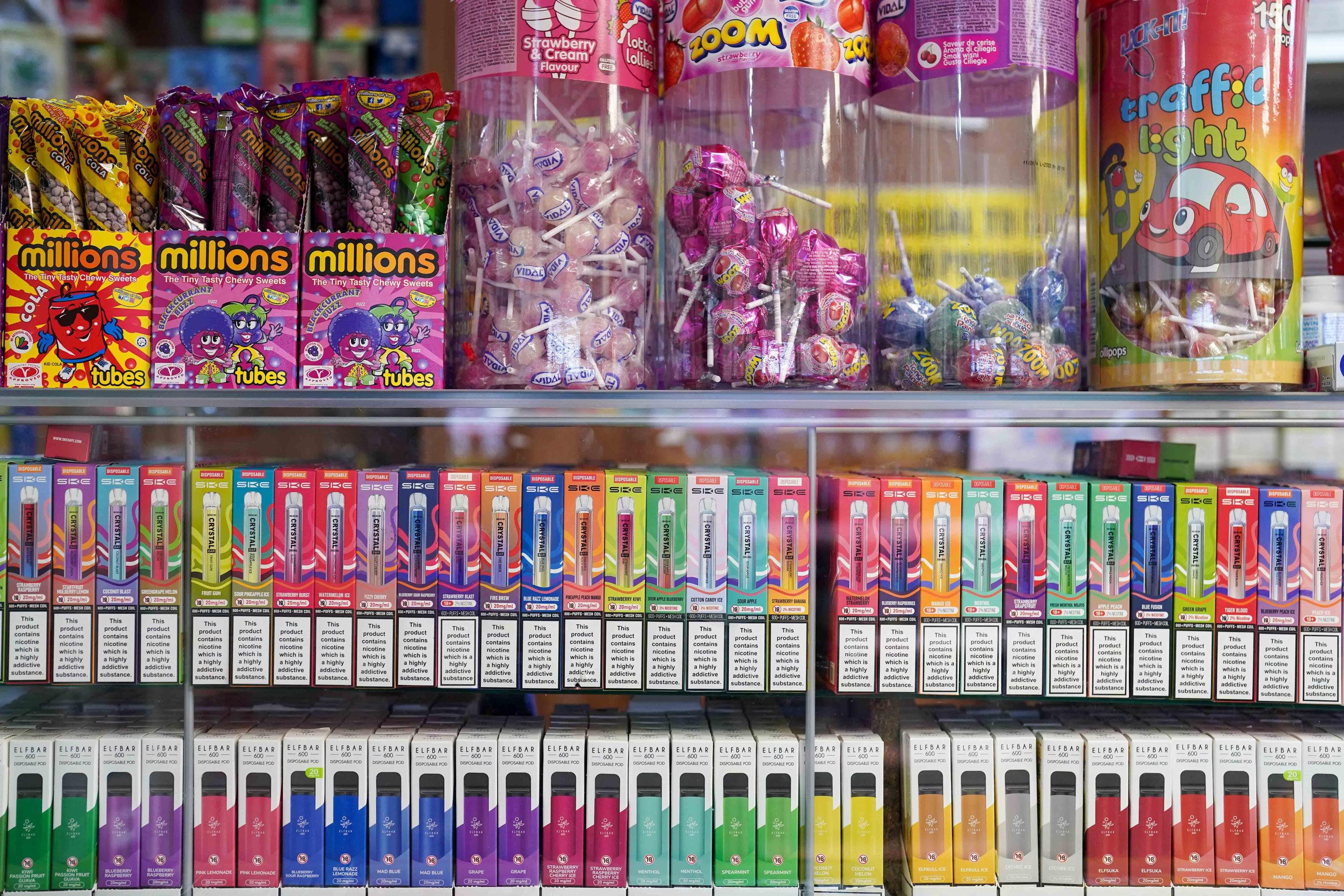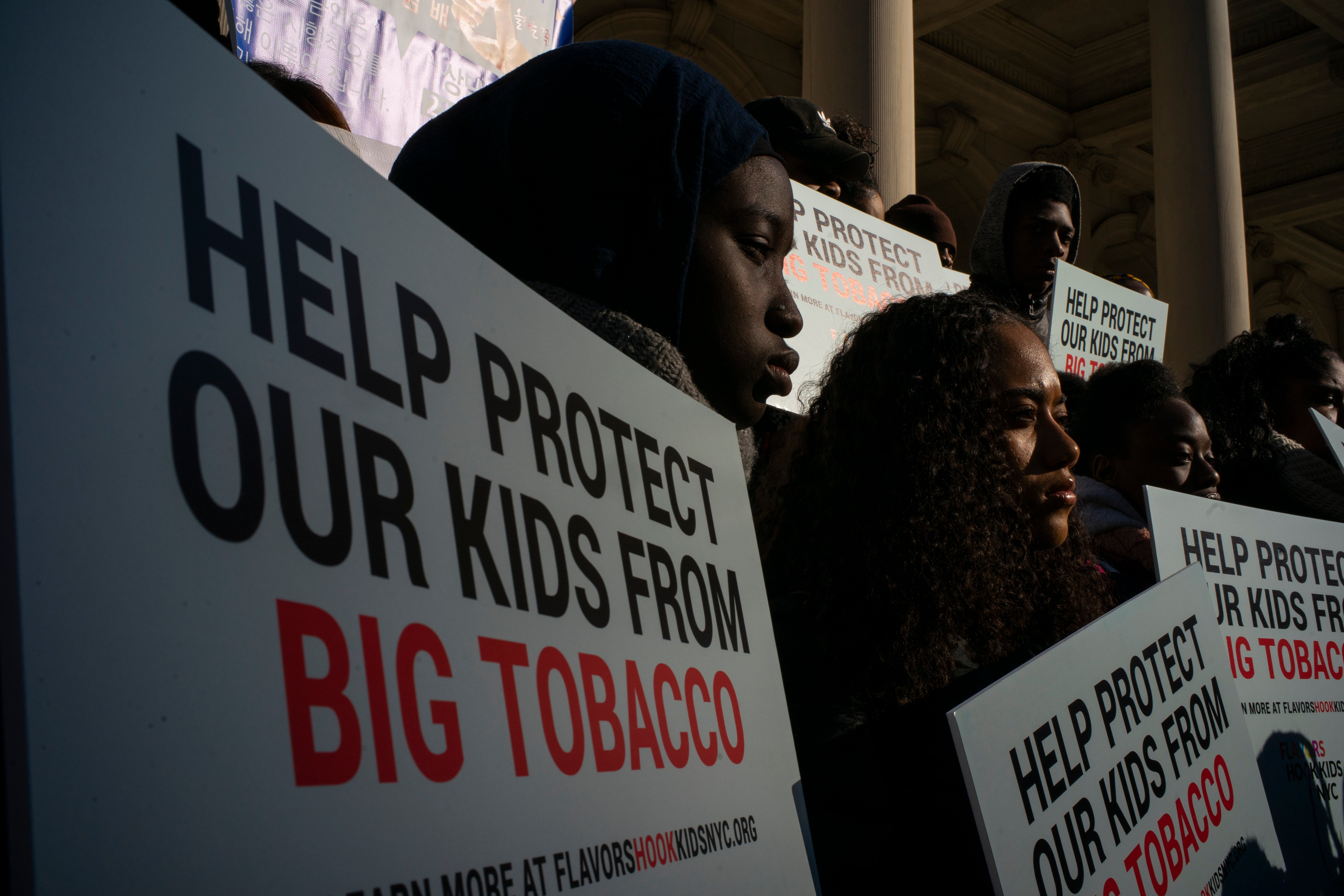The battle over whether or not e-cigarette companies may market and sell flavored vapes is at the Supreme Court on Monday, where justices will hear arguments from the Food and Drug Administration and two companies that make e-liquids.
The crux of the legal battle is whether the FDA correctly considered the companies’ requests to sell flavored e-liquid. The conservative Fifth Circuit Court of Appeals said it did not and the denial was “arbitrary and capricious.”
Now, the court will weigh its options at a unique time before Donald Trump, who promised to “save” vaping, takes office again.
For the last eight years, the FDA has utilized its power under the Tobacco Control Act to regulate e-cigarettes as vaping has boomed in popularity – particularly with minors.
Vaping is the use of a device that simulates tobacco smoking. It is an alternative to cigarette smoking and companies that manufacture, market and sell e-cigarette devices argue it helps the public by giving smokers a less damaging alternative.
But it has also created what the FDA believes is another problem; it has attracted young people to take up smoking, in part because of its interesting candy, juice and dessert flavors.
In 2019, more than five million youth were using e-cigarettes, according to the FDA’s National Youth Tobacco Survey. But since cracking down on e-cigarette companies, that number has dropped to 1.6 million in 2024.

But vaping companies have pushed back on the FDA’s regulation, claiming the agency unfairly denied more than a million applications for candy or fruit-flavored e-liquids.
The case originates from a dispute between the FDA and two companies, Triton Distribution and Vapetasia LLC.
Both applied to sell flavors with names such as “Iced Pineapple Express”, “Suicide Bunny’s Mother’s Milk and Cookies”, “Killer Kustard Blueberry” and “Jimmy The Juice Man Peachy Strawberry”.
The companies argued that e-cigarette flavors help adults stop smoking harmful products.
However, the FDA denied both companies’ applications for various e-liquid flavors, saying they have a “known and substantial risk to youth” that outweighs the benefit of stopping cigarette and tobacco smokers.
“The literature does not establish that flavors differentially promote switching amongst [e-cigarette] users in general,” the FDA wrote.
Seven other federal appeals courts have largely upheld the FDA’s decision in similar cases but the Fifth Circuit fully rejected the FDA’s regulatory authority. Ultimately, the Biden administration appealed that ruling to the Supreme Court.

Despite the FDA taking harsh regulations under Trump’s first administration, the president-elect, without evidence, attributed the drop in minor e-cigarette usage to raising the age of purchase to 21, rather than banning the use of e-liquid flavors.
“I saved Flavored Vaping in 2019, and it greatly helped people get off smoking. I raised the age to 21, keeping it away from the ‘kids,’” Trump wrote on Truth Social in September. “Kamala and Joe want everything banned, killing small businesses all over the Country. I’ll save Vaping again!”
While Trump did sign that legislation, his administration also took the first steps to crack down on flavored vapes.
But now, his second administration may take a different approach. With Robert F. Kennedy Jr. as the presumed secretary of health and human services, he could significantly change the FDA’s role in regulatory action.







